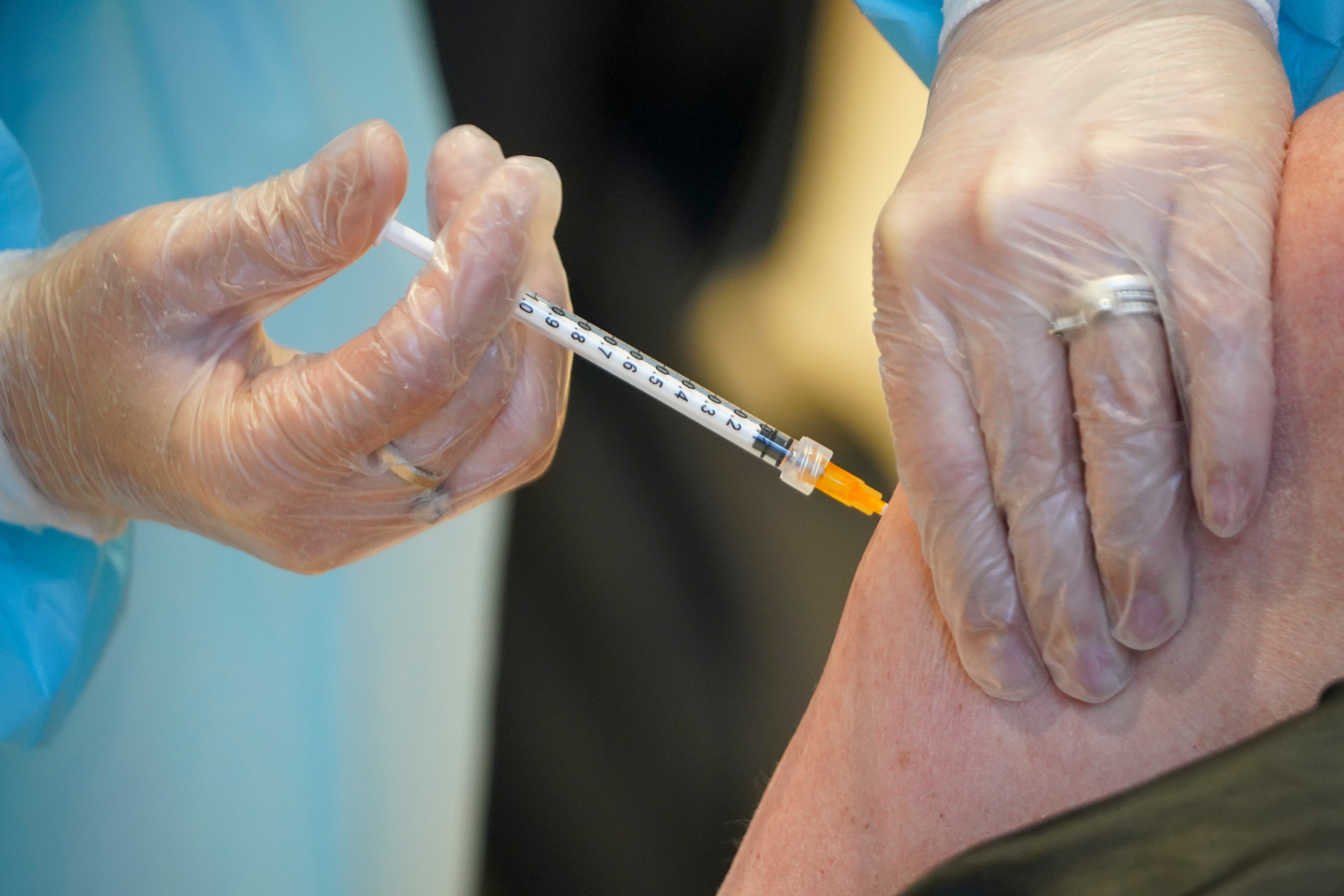Germany regrets neighbors' move to pause AstraZeneca shots
Germany’s top health official has expressed regret that some neighboring countries have paused their use of AstraZeneca’s coronavirus vaccine following reports of blood clots in some people, despite the lack of any evidence the shot was responsible

Your support helps us to tell the story
From reproductive rights to climate change to Big Tech, The Independent is on the ground when the story is developing. Whether it's investigating the financials of Elon Musk's pro-Trump PAC or producing our latest documentary, 'The A Word', which shines a light on the American women fighting for reproductive rights, we know how important it is to parse out the facts from the messaging.
At such a critical moment in US history, we need reporters on the ground. Your donation allows us to keep sending journalists to speak to both sides of the story.
The Independent is trusted by Americans across the entire political spectrum. And unlike many other quality news outlets, we choose not to lock Americans out of our reporting and analysis with paywalls. We believe quality journalism should be available to everyone, paid for by those who can afford it.
Your support makes all the difference.Germany s top health official expressed regret Friday that some neighboring countries have paused their use of AstraZeneca s coronavirus vaccine following reports of blood clots in some people, despite the lack of any evidence the shot was responsible.
Health Minister Jens Spahn said that while Germany takes reports of possible side effects from vaccines “very, very seriously,” both the European Medicines Agency and Germany's own vaccine oversight body have said they have no evidence of an increase in dangerous blood clots in connection with the shots.
“I regret that on the basis of the knowledge of Friday morning some countries in the European Union have suspended vaccinations with AstraZeneca,” Spahn told reporters in Berlin
Denmark was the first to temporarily suspended use of the AstraZeneca vaccine Thursday after reports of blood clots in some people. The Nordic nation's health authority said the decision was “based on a precautionary principle” and that one person who developed a blood clot after vaccination had died.
Norway decided to follow suit and halted use of the Anglo-Swedish company's vaccine, which was developed with the University of Oxford. Italy’s pharmaceutical agency on Thursday ordered a precautionary ban on a particular batch of the vaccine after what it said were “serious adverse events.”
The European Medicines Agency, which approved the shot for use across the 27-nation EU, Iceland, Liechtenstein and Norway, said “the vaccine’s benefits continue to outweigh its risks and the vaccine can continue to be administered” while a closer evaluation of the blood clot cases continues.
“There is currently no indication that vaccination has caused these conditions,” the regulator said. It said the number of people with blood clots in vaccinated people was no higher than those who hadn’t been inoculated.
Spahn, the German health minister, said there was no evidence so far of a causal link between the blood clots and the vaccinations, adding that it was important to strike “a balance ... between being vigilant and not causing alarm.”
Other health experts pointed out that the people most likely to get vaccinated against COVID-19 are also more likely to have other health problems, which could put them at higher risk for blood clots.
Britain's medicines regulator said it had not received any reports of blood clots in people that were caused by the AstraZeneca vaccine. More than 11 million doses of AstraZeneca have been administered in the U.K.
“Reports of blood clots received so far are not greater than the number that would have occurred naturally in the vaccinated population," the agency said. “People should still go and get their COVID-19 vaccine when asked to do so.”
___
Follow AP’s pandemic coverage at https://apnews.com/hub/coronavirus-pandemic, https://apnews.com/hub/coronavirus-vaccine and https://apnews.com/UnderstandingtheOutbreak.